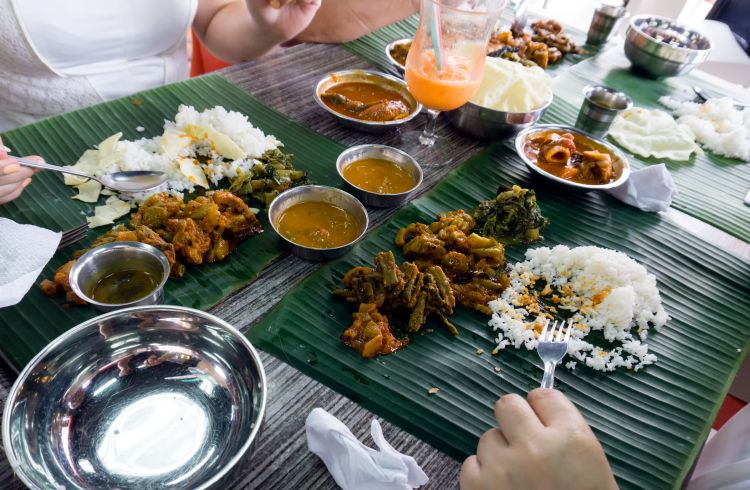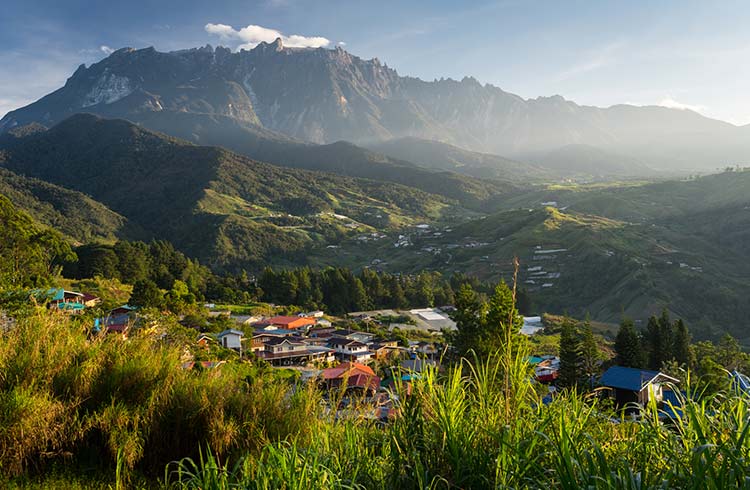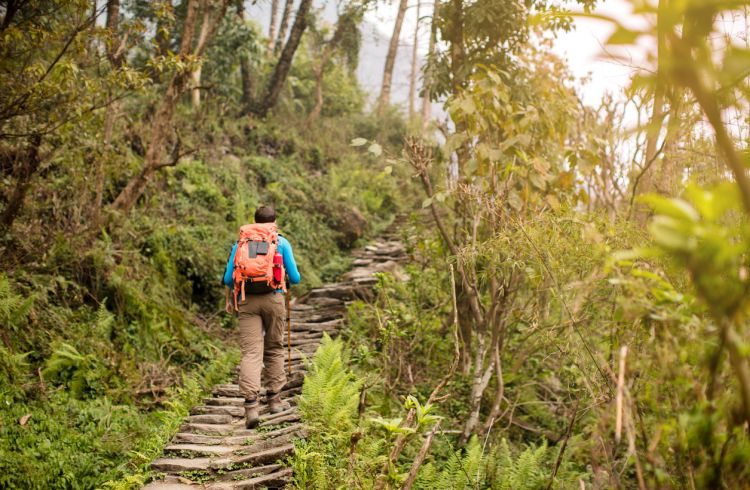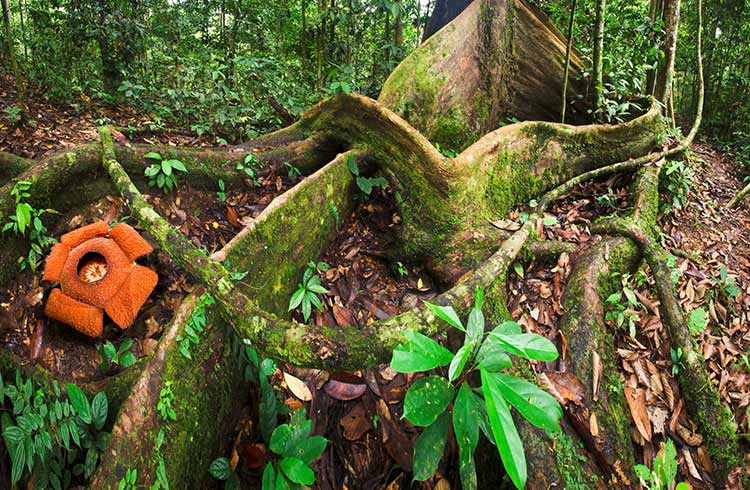How to Stay Healthy While Traveling in Malaysia
Coronavirus (COVID-19) and travel: The situation around the world is changing dramatically. Various governments have changed their travel warnings to restrict travel during this time. To understand how this may impact cover under your policy, please go to our FAQs and select your country of residence.
For the latest travel warnings and alerts around the world, read about lockdowns and border restrictions.
Malaysia, like other southeast Asian countries, has a tropical climate which plays host to a number of health issues. Find out to protect yourself and stay healthy with these tips.
Shares
 Photo © Getty Images/Nora Carol Photography
Photo © Getty Images/Nora Carol Photography
- Vaccinations for Malaysia
- Medical Treatment in Malaysia
- Mosquito-Borne Diseases
- Food and Water Borne Diseases
- Air Pollution
- Other Health Concerns
Vaccinations for Malaysia
Travelers are recommended to get the following vaccinations prior to traveling to Malaysia:
- Hepatitis A
- Typhoid
Don't forget to check if your routine vaccinations are up to date too.
For those spending extended travel time in rural locations or trekking, you may also want to get:
- Japanese Encephalitis
- Rabies
Medical treatment in Malaysia
Medical treatment in Malaysia is generally of a good standard, particularly in the major cities and towns. Government facilities offer cheap, good-quality care however like in any country, they can be busy. Private clinics and hospitals are also available however payment is required upfront and can be costly. If you need emergency medical treatment, call 999.
Mosquito-borne diseases
Malaysia is hot and humid all year around which plays a role in the prevalence of several mosquito borne diseases. Travelers who are heading to Malaysia from a yellow fever-endemic country must have a proof of vaccination card with them upon arrival. As many mosquito-borne diseases exhibit similar symptoms, it's vital that you seek medical treatment as soon as you feel unwell. This ensures you get treated promptly and for the right condition.
Malaria
Malaria is present in several parts of the country. Transmitted via mosquito bite, it's vital travelers take precautions to avoid contracting this disease. There is an ongoing debate about taking antimalarials while traveling. Everyone reacts differently and there are a variety of side effects. If you choose to take them, chat with your travel doctor first to see which ones are best for the destination you are traveling to.
The International Association for Medical Assistance to Travellers (IAMAT) reports that malaria is present up to 5577ft (1700m) in altitude. In Sabah and Sarawak, the risk is largely contained to rural locations and mountainous regions of Malaysia. The urban and coastal areas of Malaysia are risk-free. January and December are the highest-risk months for travelers.
Dengue fever
Dengue fever is endemic to Malaysia, with increased risk in urban centers and their outskirts. Peak transmission time occurs later in the monsoonal season (Oct - Feb in eastern peninsular Malaysia, Sabah and Sarawak and Jul - Aug for western peninsular Malaysia). This disease is transmitted by mosquitos between dawn and dusk, thriving in locations where water is present and poor sanitation.
Travelers must protect themselves from being bitten to avoid contracting this disease. Should you start to feel unwell, seek medical help immediately as left untreated, dengue fever can evolve into dengue hemorrhagic fever which is a life-threatening condition.
Zika virus
There is a continued risk of zika virus in Malaysia, transmitted by mosquitos during the daytime. Travelers need to take measures to prevent bites as there is no vaccination available. Pregnant women are strongly advised not to travel to Malaysia due to the risk the virus presents to an unborn child such as physical and mental development issues, plus neurological complications.
Chikungunya
This disease is related to Ross River Fever and spread by the two mosquito species which also spread dengue fever. Those infected experience joint pain, fever, skin rash, headache and fatigue.
So if you get some unusually sore joints - you may want to check it out.
Japanese encephalitis
Japanese encephalitis is prevalent in southeast Asia, with random cases being reported annually in Malaysia. However, the disease is endemic in Sarawak, with the high-risk period peaking during the rainy season. Vaccinations are available in some countries and taking bite-prevention measures will also help you lower the risk of contracting it.
Food and waterborne diseases
Travel diarrhea, Hepatitis A and typhoid are all present in Malaysia and there are some easy ways you can try and avoid these conditions:
- Visit cafes, restaurants and street vendors who are busy, have a high turnover and look clean
- Making sure food is cooked thoroughly before eating
- Eating fruits and vegetables you can wash and peel yourself
- Avoiding ice cubes and icy drinks especially if traveling in areas outside the main tourist hubs. The ice cubes in a cylinder shape are safe to consume
- Avoid drinking the local tap water unless it's been declared safe
- Always practise good hygiene while traveling.
Air pollution
Haze can drift to Malaysia from neighboring Sumatra (Indonesia) during the burning season (May to August) which blankets the country. Travelers with respiratory conditions will need to be prepared with the necessary medications or travel at an alternative time.
Other health concerns
Leeches
If you plan to do a bit of jungle trekking you will need to protect yourself from those slipperly little suckers, leeches. They love warm, dark spots on the body but can latch onto you anywhere. Most of the time you don't know they are there until you see a blood stain appearing on your clothing, as their bite injects an anti-coagulant.
Wear long-sleeved clothing, tuck your pants into your socks, stick to well-worn trails where possible and apply a strong insect repellent (if you have a spray type, spray your socks and shoes). When you get back from your trek, don't forget to check yourself over.
Should you find a leech on your body, don't rip it off. If you have a lighter with you, put the flame near the leech which should cause it to drop off. Otherwise, whip out the deet repellent or some antiseptic from your first aid kit to put on it. Salt and alcohol also work.
Hepatitis B, C and E
Hepatitis B and C are prevalent throughout Malaysia and can be contracted via unsterilized tattooing/body piercing equipment or unsafe sex. Always practice safe sex and check out the tattoo parlor before jumping under the gun. Is the place clean and hygienic? As with Hepatitis A, you can get a 3-shot series of vaccination for Hepatitis B which gives you immunity for life. For Hepatitis C, there is no vaccination available.
There is a high risk of Hepatitis E in Malaysia and it's contracted via food and water contaminated with fecal matter. The virus will cause a nasty liver inflammation condition along with fatigue, fever, pain, jaundice and loss of appetite. As you would to avoid traveler's diarrhea, typhoid and other gastro bugs, always observe good personal hygiene and take caution when eating out.
Schistosomiasis
A common infection in tropical destinations, the disease is spread by flukes (parasitic flatworms) that are carried by a species of freshwater snail, which then sheds them into slow-moving or still water.
These parasites then penetrate human skin during swimming and then migrate to the bladder or bowel. They are excreted via stool or urine and could contaminate fresh water, where the cycle starts again.
Try to avoid swimming in freshwater lakes or slow-running rivers
Rabies
Rabies outbreaks do occur throughout the year in Malaysia. The virus is transmitted from the saliva of a rabid animal (e.g dog, cat, bat) to humans via biting, scratching or even licking an open wound.
It's recommended to get a rabies vaccination if you are planning outdoor activities (such as camping, hiking, biking, adventure travel, and caving) that put you at risk for animal bites. Vaccination gives you more time to reach medical help, and to start the course of injections needed to treat rabies; if you are somewhere remote in the country, this could be a lifesaver.
If you are bitten by a rabid dog or animal, clean the wound thoroughly with soap and water for at least 15 minutes. Then apply an alcohol solution followed by an iodine-based solution (Betadine).
Seek medical treatment immediately. If left untreated, rabies is 100% fatal. Call your travel insurance provider's emergency assistance number immediately, and they will arrange care in the fastest possible time and medical evacuation if required.
Get a travel insurance quote for Malaysia
You can buy at home or while traveling, and claim online from anywhere in the world. With 150+ adventure activities covered and 24/7 emergency assistance.
Related articles
Simple and flexible travel insurance
You can buy at home or while traveling, and claim online from anywhere in the world. With 150+ adventure activities covered and 24/7 emergency assistance.
Get a quote


No Comments